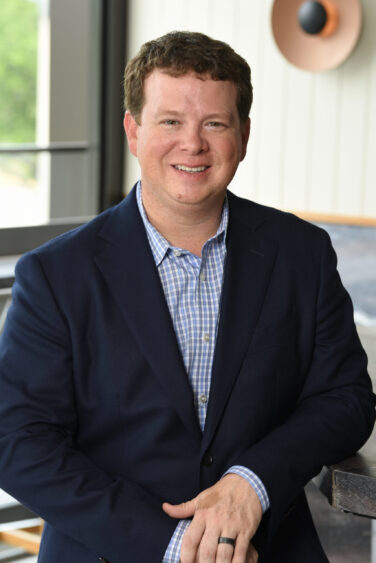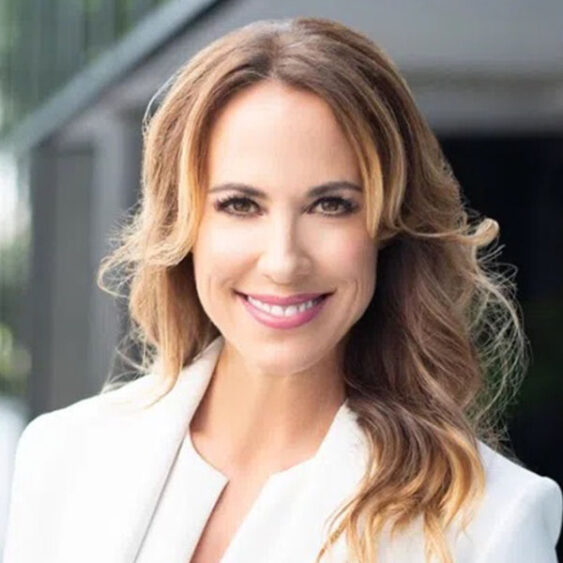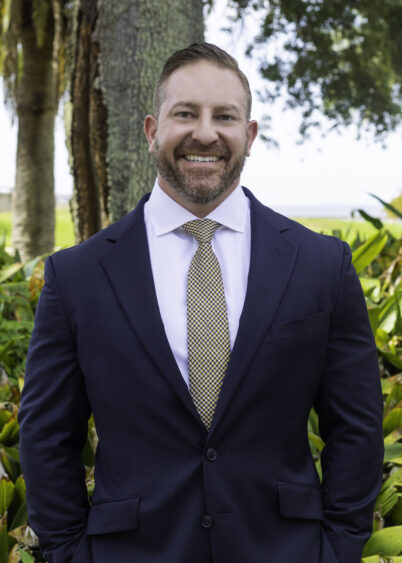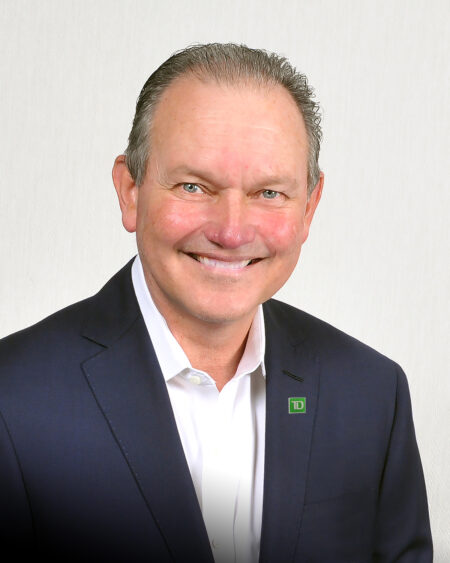What comes first, growing to expand or expanding to grow? I ask this question often to business leaders I interview, in all industries. And the answer? “It depends.”
That answer isn’t going to help you, I’m aware.
What I can provide is intel from some of the greatest minds in Tampa Bay. Experts in their field and trailblazing leaders of their businesses. I might not have all the answers on topics of how to grow your business, but I do know who to ask and, thankfully, they often take my calls.
While no one has patented a crystal ball yet, to tell us what we should do and when, these key players in Tampa Bay business come pretty close.
Here is Tampa Bay Business and Wealth’s annual Economic Outlook special report, for 2024.
The themes of 2023 were overwhelmingly similar for a lot of people, including business owners. Trepidation about interest rates, a looming recession, that never truly materialized, and a workforce problem. Most of the shifts people were experiencing were the aftereffects of a global pandemic, which seems far away in the history books, but, in fact, is still producing some ripples in how people do business.

“You can’t jump to the end without talking about the setup, which is COVID[19],” says Andrew Wright. “The outcome of COVID was $6 trillion of liquidity pumped into our system but it also kind of suppressed demand.”
Wright is chief executive officer of Ally Capital Group which owns buildings like Westshore City Center, Urban Centre One and Urban Centre Two, both in Tampa, and is an owner in Sundial, located in St. Petersburg, along with Paradise Ventures. He’s also founder and chairman of the board for Franklin Street, and is a co-founder of Next Level Brands, the hospitality group behind Boulon Brasserie and Union, both in Tampa.
“You saw tremendous price inflation and that’s been the big story,” Wright says. “We have to suck all that money out of the system so, the government raised interest rates at the fastest pace in history. If you raise rates, values go down…you make a huge adjustment, it takes time to digest it.”
While rates have been high and slow to wind down, the United States economy has performed better than a lot of forecasters warned about a year ago and rates appear to have peaked.
A lot of predictions are made by watching how consumers are behaving and consumers are still spending in a solid manner, as evidenced by a healthy holiday spending season, despite grumbles of doom and gloom in the press.
“Companies invest and they spend, whether it be on people or infrastructure, equipment, et cetera, when they’re feeling confident. There is a level of uncertainty out there, in terms of what the economy is going to look like in a year,” says Stacey Pittman, executive vice president and BT Wealth Advisors, at Bank of Tampa. “A lot of that pertains to the health of the consumer because the consumer drives three-quarters of our economy and the consumer has held up very, very well.”
Across the board, despite some of the financial hurdles seen at a national level, the U.S. economy is still performing strong, for now.
“The U.S. economy was on track to grow by about 2.4% [in 2023], which is actually faster than growth was in 2022. So, the U.S economy has defied expectations in terms of its strength,” says Leslie Preston, managing director and senior economist for TD Bank.
Interest rates seem to have cooled, and will start to come down, albeit much slower than many would like to see but, as rates drop, relief will be felt for businesses and households, in general. As inflation comes down, so will interest rates, Preston adds.
“Part of the reason we expect inflation to come down is that we expect the economy to continue to be cooling. And, alongside that, we do expect the unemployment rate to rise further through the year,” Preston says.
SPEAKING OF STAFFING
It comes up in nearly every discussion, staffing. How to find, recruit and retain top-tier talent is a challenge that business owners have been facing since the pandemic.

“What we’re finding is that employees are wanting a hybrid work environment, not a typical five-day week in-office experience and they’re demanding it. Even job candidates are demanding it,” says Carrie Charles, CEO of Broadstaff, a staffing and recruitment firm with a national presence. “I wouldn’t even call it a trend. I would call it our new normal.”
This new normal isn’t something that is an option, she adds. “If you haven’t already adapted to that as an employer, you’re going to need to.”
Another issue is diverse types of industries reporting talent shortages.
According to the U.S. Chamber of Commerce, in 2022, employers ended up adding 4.5 million jobs, but many of those job openings are going unfilled because the country does not have enough workers to fill them.
If our labor force participation rate today were the same as it was in February 2020, there would be 1.7 million more Americans in the workforce to help fill those open jobs.

In the cycle of “employee years” and “employer years,” the current landscape is that of an employee year, says Clifton Scott, CEO of Career Match Solutions. “When the unemployment rate is high, then employers have an opportunity to choose.”
The issue will be adapting, employers may not be able to wait until the “employer” cycle returns and it may not.
“I feel like people have been so affected, and transformed, by what they experienced during COVID[19] and the changes inside themselves. All of that self-reflection of what kind of life do I want to live?” Charles says. “I think that employees are going to continue to hold this power, especially when there’s going to continue to be some workforce shortages.”
Companies will be forced to pay attention to engagement and benefits to mitigate retention issues, Charles adds. “Employers still need to pay attention to creating very strong cultures and keeping people engaged.”
THE LOOMING CRISIS
It’s one of those topics that if you know, you know. Insurance is a sleeper cell of an issue that keeps a lot of people up at night, both in business and in their personal lives.
“Insurance is a major issue and operating costs continue to squeeze margins,” Wright says.
The result of this squeeze, with premiums rising and coverage eroding, is there will be a rise in defaults and a halt to development.
“Insurance is really in a crisis. I’ve been saying that for years in my presentations. It hasn’t gotten better. It’s gotten worse. I think the only saving grace is that it’s gotten so bad that it might actually start attracting some money into it,” Wright says. “Insurance is a massive, massive problem.”
On the real estate side, Wright cites some positive developments he’s seeing in the market but emphasizes there are some wide-ranging issues that need to be monitored, with caution.
“Rents are flattening, they’re going down, more than likely we’ve overbuilt, so we haven’t absorbed all of these units,” Wright shares. “I’m very bearish on the economy. I think the economy’s set up for serious problems that have wide-ranging impacts but on the other side of that, there’s tremendous opportunity.”
That opportunity, Wright adds, is on the acquisition side, when done right. But the pressure is still on.
“All of my operating companies are feeling the pressure of downward on the revenue and upward on the expenses. I’m not reading it in a paper, I’m living it,” Wright says.
Overall, there’s a cautiously optimistic view of what 2024 could hold for business stakeholders and the economy, in general.
“People are fairly optimistic, but they’re still concerned,” says Owen LaFave, senior vice president, Pinellas County market president at Bank of Tampa. “I think, from a general banking standpoint, one of those concerns is really just the availability of credit.”
Even with some of the more positive notes of higher spending from the consumer, lenders might be hesitant to approve credit.

“As I’m having conversations with my fellow colleagues, at other banks, they are solely looking for deposits and dealing with the realities of having to pay out further deposits and [have] interest rate compression concerns about liquidity. The way you retain liquidity is if you don’t lend. So, the lack of lending and credit availability is going to impact the ability to grow and economic activity,” LaFave says.
Even still, Tampa Bay may be the national outlier with the ability to weather some of the stagnation of growth.
“What’s great here, in Tampa and I think across Florida in general, is that we’ve got a particularly resilient economy,” says Mike Nursey, the North Florida commercial market president for TD Bank. “The first reason is that Florida and Tampa, both, have very business-friendly governmental environments. The second thing is, it’s an advantage to have a 21-million-person population and a more diverse business community relative to industries than most people think.”

Some people might immediately think of tourism and entertainment, it is the Sunshine State, after all, but Nursey says the broad scope of industry in the Tampa Bay market is much greater than beaches and winning sports teams.
“Here, in Tampa, I think in the last year we’ve added 30,000 jobs in the combination of professional services, business services, health care and education [and] none of those are tourism related. I believe that our area is uniquely able to continue growing just because of that, the energy that already exists in a number of industries and plus the popularity for people moving from other states, that aren’t doing as well, to come to Florida and have a chance to have an enjoyable life with good weather and a great job market.” –
The Rise of the Robots
In the staffing and recruitment space, and eventually in every industry, if the experts are correct, Artificial Intelligence will be an ongoing discussion, whether we like it or not.
“We’re going to see that companies are going to start utilizing AI even more. They’re going to rely on technology like AI and platforms that are AI-powered in order to become more efficient and do more with less people,” says Charles.
Over the next 10 years, AI will be replacing jobs, a lot of them, predicts Scott.
“We anticipate that as much as 100 million jobs will be impacted. Those jobs will either disappear or they’ll become part-time. Just because AI will alleviate the need for customer service. It’ll alleviate the need for call centers and those types of jobs will disappear,” he says.
While AI will, no doubt, change the landscape of the workplace and the makeup of the workforce, there will always be a need for the human component.
“There’s nothing like human interaction. There’ll always be that freeform thought process that can’t be replaced by a mechanical machine,” Scott explains.
He adds that the key is to integrate, not replace, when it comes to AI.
“A lot of organizations are going to see the opportunity to cut into the bottom line and, as time goes by, integrating these technologies. However, it does not do away with the most important part, which is the human component,” Scott says. “We have to continue to stay engaged as human beings.”
